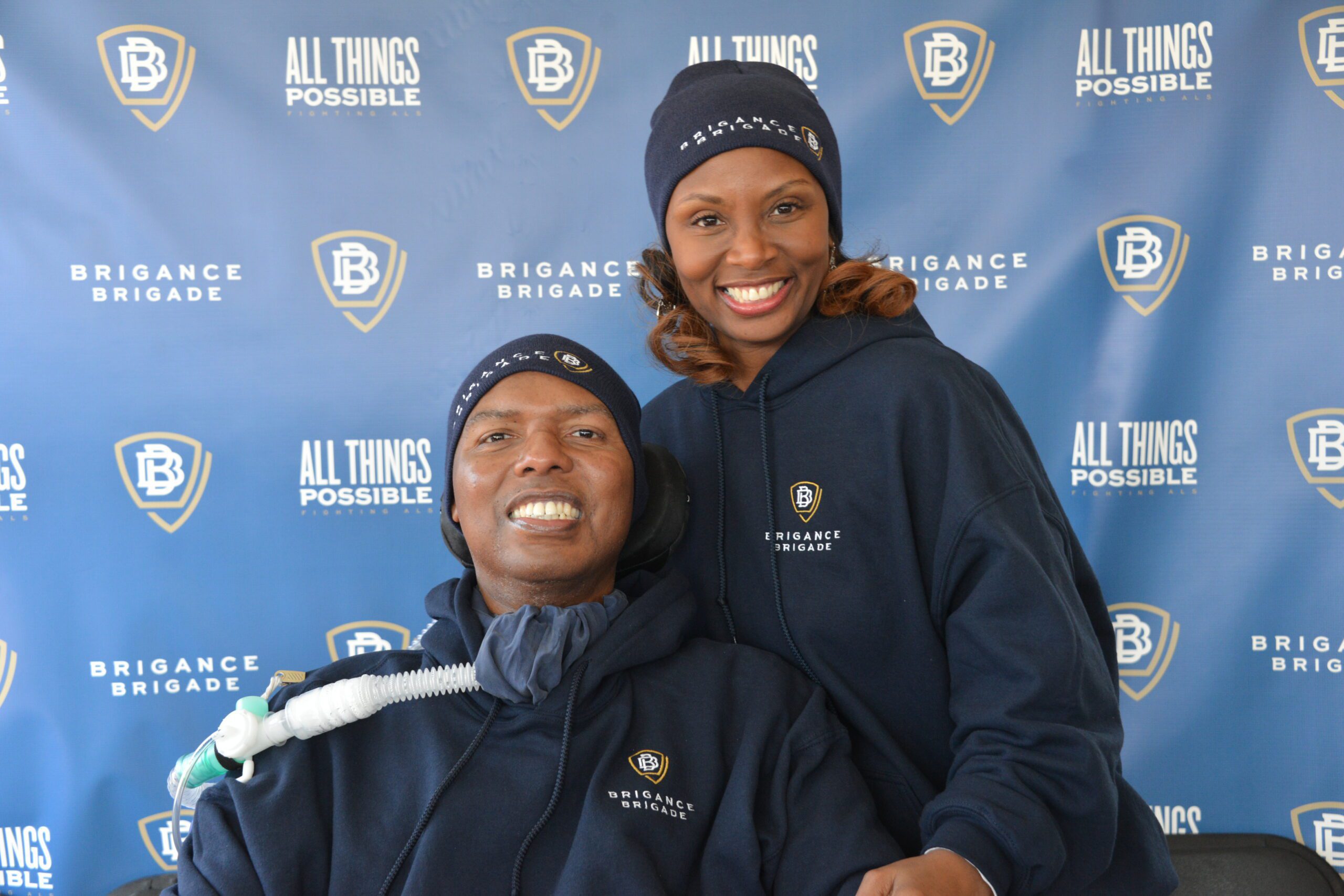In Colombia, where rich biodiversity extends beyond its lush landscapes to the very fabric of its people, a groundbreaking scientific initiative is taking root. The Target ALS Global Natural History Study is not just another research project—it’s an innovative and groundbreaking step towards bridging gaps between genetic diversity, cultural understanding, and cutting-edge ALS research. At the forefront of this mission is a neurologist who works at the ALS multi-disciplinary clinic and serves as a Principal Investigator for Target ALS’s Global Natural History Study Colombia Site, Dr. Martha Peña and her dedicated clinic team. Their passion for ALS research is as much about scientific discovery as it is about human connection.
Genetic Diversity: Colombia’s Hidden Research Treasure
Colombia’s diverse population, shaped by centuries of indigenous heritage and cultural fusion, offers a unique genetic landscape. Dr. Peña emphasized, “Solutions to ALS can be found in genetic diversity.” Unlike more homogeneous populations, Colombian cohorts reveal complex genetic interactions that could unlock critical insights into ALS progression. The presence of many families with ALS carrying rare genetic mutations, living in Huila, an isolated region of southwest Colombia, is an example of this. These cases not only shed light on familial ALS patterns but also reveal how genetic factors intertwine with environmental influences.
In Latin America, genetic mutations commonly associated with ALS in European populations, like SOD1, can result in different clinical symptoms like language and behavioral symptoms associated with frontotemporal lobe dementia (FTD). ALS in Colombian people can also be due to oligogenicity—multiple gene mutations influencing disease onset and progression—highlighting the importance of studying diverse populations. This genetic mosaic may hold the key to understanding why some ALS cases progress rapidly while others do not, offering hope for more personalized treatments.
Filling the Gaps: From Basic Science to Patient Care
One of the most significant contributions of the Target ALS study in Colombia is bridging the gap between laboratory research and clinical application. The comprehensive natural history study includes genomic analyses along with longitudinal clinical, demographic, and environmental questionnaires over a period of 16-18 months. The study allows for a deep characterization of people in Colombia and sets the stage for future drug companies to enter Colombia for their drug trials. Dr. Peña pointed to the lack of in-depth understanding of environmental influences on ALS as a critical research gap. Traditional lab models, isolated from real-world variables, fail to capture the full picture of disease progression. Target ALS addresses this by studying participants in their natural environments, providing richer, more applicable data.
Moreover, the study fosters a holistic approach to patient care. At Instituto Roosevelt, multidisciplinary teams work transdisciplinary, surrounding patients with coordinated support from neurologists, physiotherapists, geneticists, and psychologists. This model not only improves clinical outcomes but also enhances the quality of life for patients and their families.
Empowerment Through Community and Research
For the ALS Community, isolation can be as devastating as the disease itself. Dr. Peña reflects on her early days working with people with ALS who did not want to be left without help or support. This plea has shaped her approach, emphasizing human connection as a cornerstone of care. The Target ALS study amplifies this by creating spaces where individuals support each other, fostering resilience and shared hope.
Group therapy and ALS educational sessions at Instituto Roosevelt, born out of resource limitations, have become powerful platforms for emotional support and peer learning. “Patients start supporting each other, creating social ties that strengthen their coping strategies,” Dr. Peña observed. This community-centric model not only improves mental health but also enhances adherence to treatment, demonstrating the profound impact of social determinants on health outcomes.
Tackling Ultra-Rare Mutations: Colombia’s Unique Contribution
Colombia’s ALS landscape includes ultra-rare genetic mutations, such as those affecting TDP-43. In states like Huila, families have become inadvertent diagnosticians, recognizing disease patterns across generations. Dr. Peña has found this deeply fascinating: “The family made the diagnosis before the neurologists confirmed it.” These cases offer invaluable insights into ALS’s genetic underpinnings and the role of familial observation in early detection.
The potential breakthroughs from studying these rare mutations are immense. Understanding how environmental factors interact with genetic predispositions could delay disease onset, extending healthy years even in individuals with high-risk mutations. “If we could delay the disease from manifesting at 50 to 70, that would be significant,” Dr. Peña noted.
Beyond Genes: The Role of Culture and Environment
Dr. Peña’s research extends beyond the genome to the “exposome”—the sum of environmental exposures influencing health. “Latin American cultures have strong emotional support systems, and this modifies ALS prognosis,” she explained. Family-centered caregiving, prevalent in Colombia, can positively impact disease progression, illustrating the intricate dance between biology and environment.
Environmental factors like pollution and occupational hazards also play a critical role. Dr. Peña highlighted that clusters of ALS cases have been noted in highly contaminated areas of Bogotá, suggesting that environmental toxins may trigger or accelerate disease in genetically susceptible individuals. The Target ALS study’s comprehensive approach and implementation of an epidemiological and environmental questionnaire, integrating genetic, environmental, and cultural data, is essential to uncovering these complex interactions.
A Life’s Work Rooted in Compassion
For Dr. Peña, ALS research is more than a profession—it’s a calling. “People with ALS have taught me not just about the disease, but about life,” she said. Her work embodies the spirit of the Target ALS study: a blend of scientific rigor and deep empathy.
She explained, “This has become a life project. There was a professor who told me that I wasn’t a specialist in ALS, but an activist in ALS. People with ALS have taught me a lot about the disease, about medicine, about neurology, but also about life. So, for me, it’s a privilege—a privilege that comes with suffering and demands, but it’s a privilege, just like doctors who are dedicated to delivering babies consider it a privilege. I consider it a privilege to work with people with fatal diseases like ALS.”
The Target ALS Global Natural History Study is revolutionizing how ALS is understood and treated. It’s not just about collecting data; it’s about honoring the lives behind the data, learning from their stories, and striving for a future where ALS is no longer a terminal diagnosis but a manageable condition.





